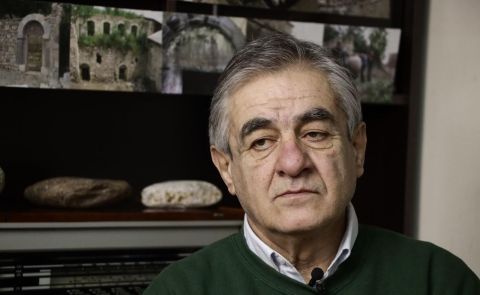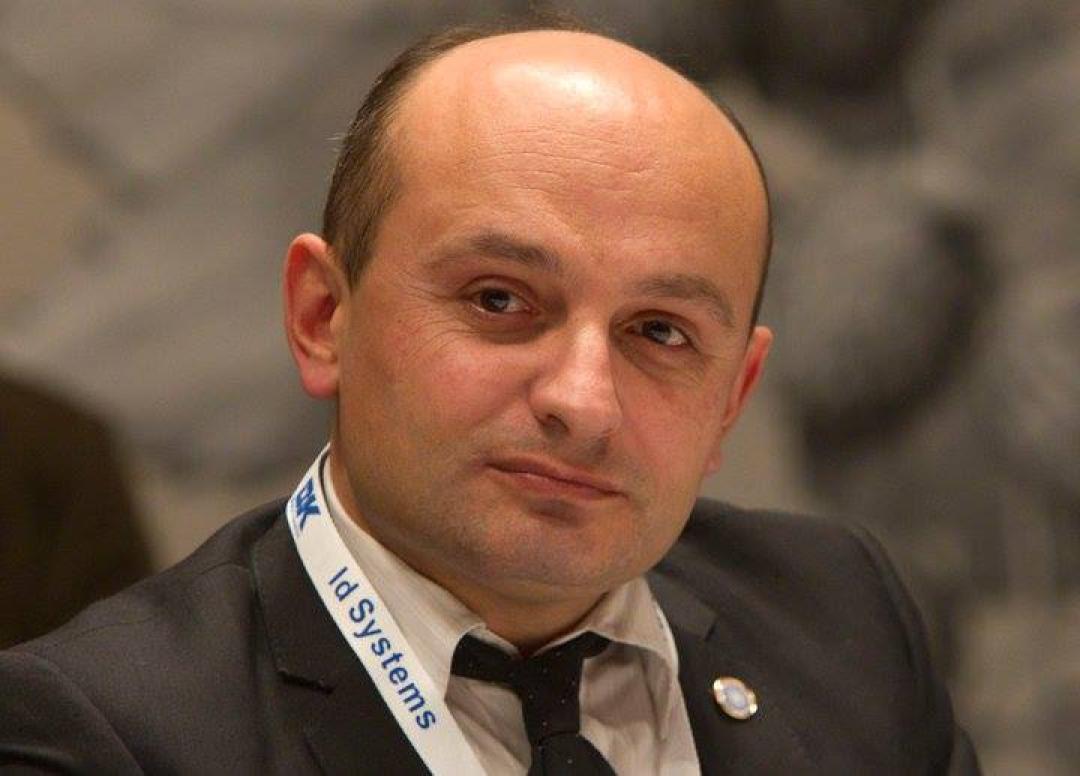
Stepan Safaryan: Hybrid war is being waged against the Armenian government

Has the Armenian political and business elite transformed since the Velvet Revolution in 2018?
Armenia did not undergo drastic changes no matter how radical the change of direction was in terms of government. For many reasons, Armenia did not carry out radical clearance and purification. One of the reasons was that economic capacity and that everything was under the control of the former government, which was both political and economic elite. Taking into consideration that the transfer of the power lasted for 7 months, I mean the situation before the parliamentary elections, when members of the former incumbent faction were in parliament, and the revolutionary team had only taken over the executive body, the government did not follow the path of the purification in order to avoid an economic crisis as they were capable of causing serious fluctuations in the economics which would have also caused social fluctuations. And those cases which involved corruption deals, for instance, the former chairman of the State Revenue Committee, former PM Hovik Abrahamyan, or other individuals or organizations like “South Caucasus Railway”. These cases received political responses that [made it seem like the] government was trying to avoid some confrontation. Of course, many left Armenia to avoid justice. However, criminal cases were preserved. This caused public discontent and if in many cases they do not question the political will of the government in terms of revealing this or that crime, however, they criticize the government for being weak and allowing the procrastination of administration of justice.
How did it affect the polarization of society?
Of course, it has provoked tensions, as in the context of these economic, political, and other criminal cases no matter how small the involved group was still had a lot of assets, wealth, and financial resources which are invested in the poising of the public atmosphere. Hybrid war is being waged against the government using fake news, provocations and defamation. I can’t say that many believe, but the created chaos of fake news can affect the naive, particularly those who are dissatisfied with the implementation of their expectations. But, in general, it tenses political life as those people are trying to act like the political opposition is covering up the exclusive criminal nature of the… cases against them. They also try to weaken the social standing of the government by publicly announcing that they are going to return. They are hoping that this government will be so weakened, and an interim government will be formed. And thanks to that they will avoid justice.
New conservative parties and movements have been formed in Armenia recently. Do they have an impact on the current situation? And do they have political potential?
The majority of them were closely connected and are still closely connected with the former government. Unfortunately, there was not a so-called clear partisan system in “old Armenia”. It is a well-known fact that the business and politics were merged in Armenia. And in many cases, politics was the biggest business. And businessmen formed an oligarchy where they were not only wealthy or owned the biggest part of the nationwide wealth but also, they had power, they were the decision-makers. And in that situation, the parties were a terror for that system. As the parties were in a huge financial dependency on those oligarchic groups, as they were both the political and economic power, of course, they [the parties] served them. In the parliamentary elections which were held on December 2, 2018, they were seriously cut from the state power, when the former government left. But they haven’t been cut off from the political power - those parties which were serving them before continuing to serve them now and are their facades - directly or indirectly, cautiously or carelessly, hiddenly or openly. And of course, that problem exists now. If oligarchy vanished from the state power - the business was separated from politics, we don’t know whether or not the government will be infected with this illness in the future, but in the political system, they remain unseparated. As I have already mentioned the groups who have avoided justice and are striving for revenge, continue using some parts and some groups of the partisan system as a facade for their fight with the government. In that sense, it is bad that the separation has not reached every party, every group. And the conservative groups imitate it and do not carry the conservative ideology as they are mostly the representatives of the interests of the business groups, former economic elites. Therefore, the words “political” or “conservative” should be used with reservations. They are only coverages, which cover the former economic elites who have crawled in the state power with their help and have formed an oligarchy but then were driven out by the revolution from the state power. The merging of political and economic systems continues to maintain at the level of these “conservative” groups of the former government.
Do they have an opportunity to be elected to the parliament?
The history of Armenia showed that the political forces which have lost power have never returned, for example, the Pan-Armenian National Movement or the Republican Party of Armenia. Of course, that regularity is not an absolute. But that is the peculiarity of Armenian politics. Even if we suppose that society can be disappointed with the current government at some point and give preference to another one, I am sure that the other one will not be the former one. Even if we talk about the change of… government in the future, which is normal, as the revolutionary team cannot stay in power forever if it continues to be as devoted to democratic values as it was during the revolution or even today. In that case, of course, new forces can be created. And the former ones cannot be among those forces. We have several examples of these cases - there is no return. There was an attempt of a palace coup in Armenia, in 1998. Groups of the former government hope that the current government will be divided into two and someone will go against Nikol Pashinyan. But it is a non-working scenario, because in a palace coup in 1998 when the government was divided into two, there were other factors - the sensitive factor of Nagorno-Karabakh, a weakened president who has lost his legitimacy in the elections in 1996 and stronger and more aggressive nationalist wing. In this case, to hope that reverse can happen in the form of a palace coup… cannot happen, as there is no one equal to Pashinyan, even in his team. The former government counted on the possibility that the [current] government would be divided into two and they will return. And it is quite difficult to return with elections, as the memory of people is very important, and that memory did not let them return the first political force of Armenia - the Pan-Armenian National Movement. The Republican party or the groups ripped from it cannot be elected in the upcoming parliamentary elections. In the case of a national return, they cannot regain the trust… they have lost once and for all.
The Council of Europe’s Lanzarote Convention was ratified by Armenia’s parliament recently and there were debates over the Istanbul convention. How did Armenian society react?
Generally, there is a concerning situation all over the world. The tendencies of disintegration have intensified, the integration structures have weakened considerably. This is a consequence of the weakness of international norms and mechanisms. The susceptibilities of the public to conventions on such vulnerable groups has increased not only in Armenia but all over the world. And generally, the word “convention” causes caution - no matter it is on violence against women or non-traditional minorities such as religious and sexual, or child molestation. And they have begun to be interpreted as external channels that would destroy state sovereignty… and will bring undesirable mechanisms and values. In the context of the erosion of international norms, the weakness of international institutions, and integration, I assure you that the ratification of other conventions will be more problematic than the ones you have mentioned. This is not only the problem of Armenia, as these tendencies are observed in other countries… and even in European countries which are already jealous of non-local mechanisms that restrict the sovereignty and are “imposed” on it.
And the former government which acts under the conservative ideology that you have mentioned, try to fit in and fight against them and present them as the ones who serve the anti-national, international super national forces, and who try to destroy the traditional institutions. This problem is observed not only in Armenia, but… also exists in our neighboring countries, even in the European countries.
Interviewed by Ami Chichakyan
See Also


Irina Mamulashvili: Electoral Interference is a Playbook, not a Recipe

Giorgi Gakharia: The EU Should Engage Georgia Despite Its Democratic Backsliding

Peace or Capitulation? Shahverdyan on Armenia-Azerbaijan Agreement and the Nagorno-Karabakh Crisis

Ali Mousavi Khalkhali: Iran Will Avoid Conflict in the Caucasus

